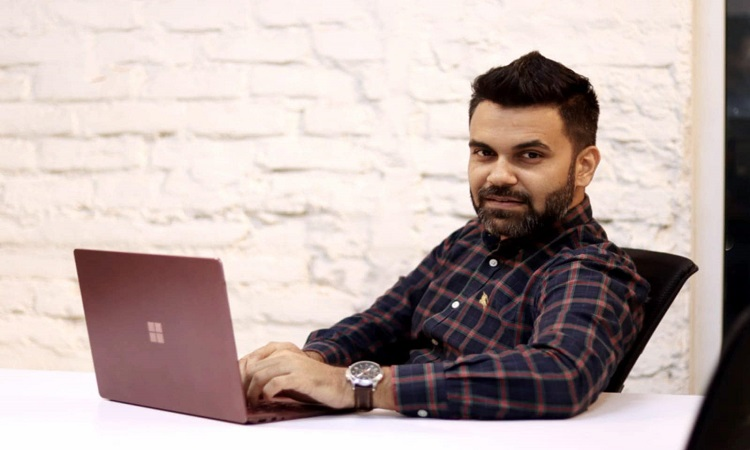

Yasir Sabab is the Lead, Marketing, Brand & E-commerce at MICLO, bringing over 10 years of experience in brand development, marketing, product development market research, business development and communications. He has had successful tenures at renowned organizations such as Grameen Digital Health, Gemcon Group, RAK Ceramics Graphics Textiles and so on. His extensive expertise and strategic vision makes him a key asset to MICLO, where he combines his passion for fashion with a commitment to sustainability and social responsibility.
Can you share insights into MICLO's approach to fashion and clothing trends in the Bangladesh market?
Yasir Sabab: MICLO stands for "My Clothing," inspired by the Japanese lifestyle, emphasizing simplicity, tech-savvy style, and unwavering quality assurance. As a Japan-Bangladesh venture, our goal is to offer Japanese-quality clothing at affordable prices, catering to the everyday wear needs of our customers. We strive to make fashion accessible to everyone in the market.
What distinguishes MICLO from other clothing brands, and how do you maintain a competitive edge?
Yasir Sabab: At MICLO, we believe we are not just a clothing brand; we are a new revolution that embraces individuality, creativity, and a lasting commitment to social responsibility through the power of clothing. This philosophy sets us apart and drives our competitive edge. Our focus on sustainability, ethical practices, and innovative designs ensures we stay ahead in the industry.
How has MICLO adapted to the changing consumer preferences in the fashion industry?
Yasir Sabab: At MICLO, we continuously evolve by listening to our customers and adapting to their preferences. Our commitment to making a positive impact on society reflects in our designs and business practices.
Are there any collaborations or partnerships in the pipeline that you're excited about for MICLO?
Yasir Sabab: We are excited about several upcoming collaborations that align with our vision of offering international standard sales service. While we are initially targeting the Bangladeshi market, we have strategic plans to expand globally. Additionally, we prioritize environmental protection throughout our supply chain, garment production, and delivery processes, ensuring we make a positive impact on the planet.
How does MICLO integrate cultural elements into its designs, considering its presence in Bangladesh?
Yasir Sabab: MICLO draws inspiration from Japan's trends while considering the everyday lifestyle of our customers in Bangladesh. We blend simplicity in design with cultural elements to create a wardrobe that feels like a buddy to our customers. Our designs reflect the fusion of Japanese aesthetics and Bangladeshi cultural nuances.
What are your plans for MICLO's growth and expansion in the coming years?
Yasir Sabab: Our growth strategy involves strengthening our presence in the local market and gradually expanding to other global markets. We aim to establish MICLO as a strong retail clothing brand internationally, maintaining our commitment to quality and sustainability. By leveraging technology and innovative marketing strategies, we plan to reach a wider audience and make a significant impact in the fashion industry.
Can you discuss MICLO's commitment to sustainability and how it influences your business practices?
Yasir Sabab: Sustainability is at the core of MICLO's business practices. We are committed to minimizing our environmental footprint by adopting eco-friendly production processes and materials. Our supply chain is designed to be as green as possible, and we continuously seek ways to improve our sustainability efforts. This commitment not only helps protect the environment but also resonates with our customers who value responsible fashion.
How do you envision MICLO's role in the local community and its contribution to social causes?
Yasir Sabab: MICLO is dedicated to making a positive impact in the local community. We engage in various social causes, from supporting local artisans to initiating community development projects. Our goal is to empower individuals and contribute to societal well-being through our business practices and initiatives. By doing so, we hope to inspire others and create a ripple effect of positive change.

